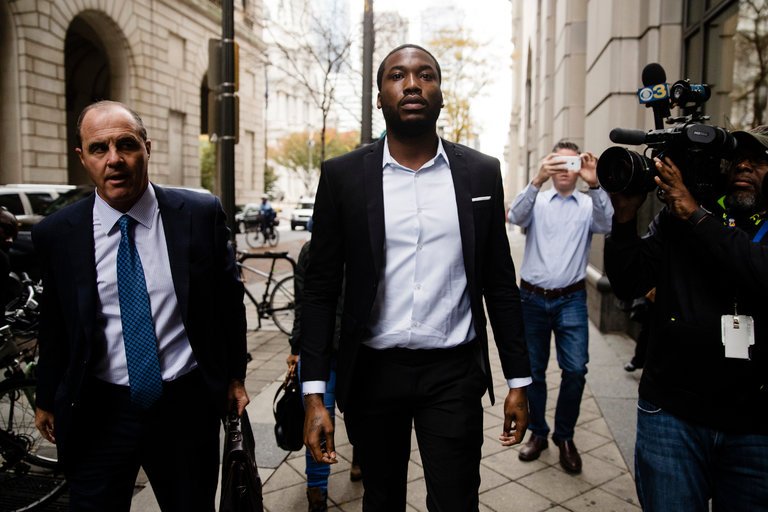This month Meek Mill was sentenced to two to four years in prison for violating his probation. #FreeMeek hashtags have sprung up, and hundreds of his fans rallied near City Hall in Philadelphia to protest the ruling.
On the surface, this may look like the story of yet another criminal rapper who didn’t smarten up and is back where he started. But consider this: Meek was around 19 when he was convicted on charges relating to drug and gun possession, and he served an eight-month sentence. Now he’s 30, so he has been on probation for basically his entire adult life. For about a decade, he’s been stalked by a system that considers the slightest infraction a justification for locking him back inside.
What’s happening to Meek Mill is just one example of how our criminal justice system entraps and harasses hundreds of thousands of black people every day. I saw this up close when I was growing up in Brooklyn during the 1970s and 1980s. Instead of a second chance, probation ends up being a land mine, with a random misstep bringing consequences greater than the crime. A person on probation can end up in jail over a technical violation like missing a curfew.
Taxpayers in Philadelphia, Meek Mill’s hometown, will have to spend tens of thousands of dollars each year to keep him locked up, and I bet none of them would tell you his imprisonment is helping to keep them safer. He’s there because of arrests for a parole violation, and because a judge overruled recommendations by a prosecutor and his probation officer that he doesn’t deserve more jail time. That’s why I stopped my show in Dallas last week to talk about Meek.
Look at what he’s being punished for now:
In March, he was arrested after an altercation in a St. Louis airport. After video of what had actually happened was released, all charges were dropped against Meek. In August, he was arrested for popping a wheelie on a motorcycle on his video set in New York. Those charges were dismissed after he agreed to attend traffic school.
Think about that. The charges were either dropped or dismissed, but the judge sent him to prison anyway.
nytimes.com


